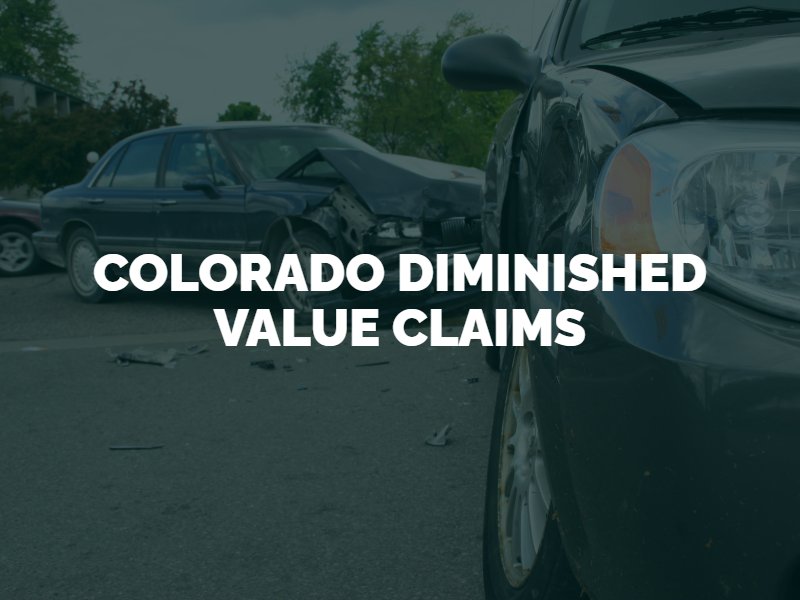If you get into an auto accident in Colorado, the value of your vehicle may diminish. A crash history can reduce the overall resale value of your car even after repairs are made. Lower quality replacement parts, reluctance to purchase a car with a crash history, compromised warranties and undiscovered damages can all reduce a wrecked vehicle’s value. Luckily for owners, insurance companies permit diminished value claims. These claims serve to repay crash victims for the diminished values of their vehicles.

Colorado uses a fault-based car insurance law to determine liability for the damages connected to a car accident. After a car accident that causes property damages or personal injuries, the victim can hold the responsible party financially accountable. This includes for the diminished value of the damaged vehicle. If someone else caused your car accident in Colorado, you have the right to seek benefits from that person’s auto insurance policy. You may be able to seek damages for one of three types of diminished vehicle values.
An inherent diminished value claim is the most common type. You may have this type of insurance claim if the value of your vehicle is less than it was before the crash even after receiving quality repairs that restore the vehicle to its pre-crash structure and appearance. Any type of diminished value or lost value insurance claim in Colorado could lead to compensation to bridge the gap between what your car was worth before the crash and what it is worth now.
Your personal auto insurance policy will rarely cover diminished value. In general, you will need to have a case against another driver for negligence or recklessness to receive compensation for your car’s diminished value. Your ability to recover fair and full compensation for lost vehicle value can depend on how well you negotiate with the at-fault driver’s insurance company. Keep a few tips in mind when dealing with an insurance company for the best possible outcome.
If you did not cause your car accident, you should not have to pay the related costs. A successful diminished value claim in Colorado could repay you for monetary losses related to a reduction in vehicle value after a car accident, as well as other losses. Convincing an insurance company to pay a fair amount for your vehicle’s diminished value, however, can be difficult. You may need a car accident lawyer to take over claim negotiations for you. File your claim with an attorney’s assistance for the best possible results.